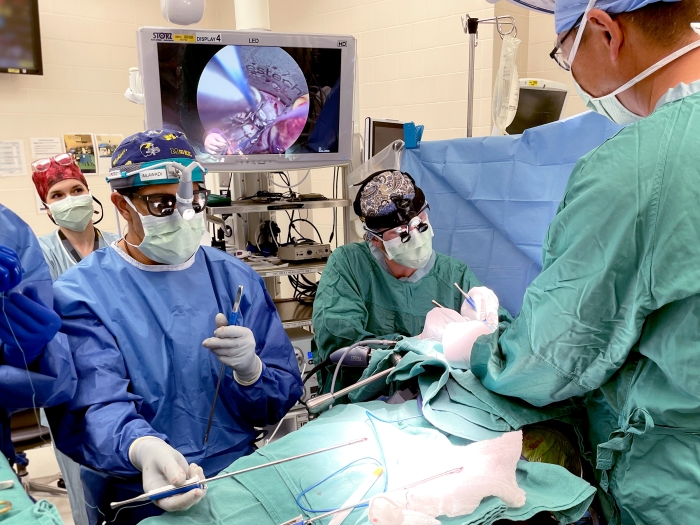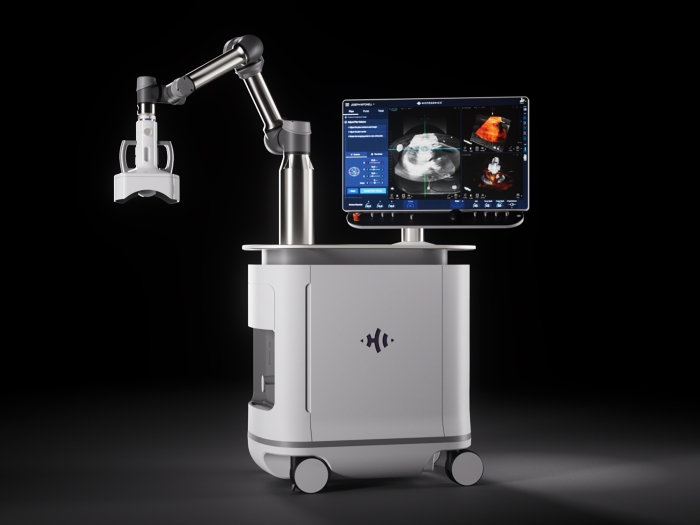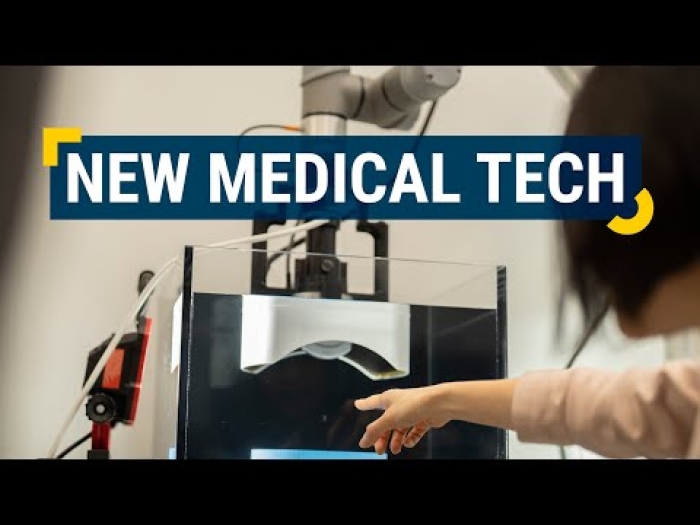Showing 46-60 of 125 results

Health Lab
Postoperative atrial fibrillation, commonly known as Afib, has traditionally been viewed as benign and limited. But a study led by researchers at the University of Michigan Health Frankel Cardiovascular Center finds that postoperative atrial fibrillation increases the risk of strokes and permanent Afib — and is linked to worse long term survival — after heart valve surgery.

Health Lab
Researchers from the University of Michigan Health Rogel Cancer Center have developed a monitoring system using a research genetics program to trigger alerts about cancer patients suspected to have the DPYD gene variant.

Health Lab
National study examined health care perceptions of approximately 3,500 women, including those with and without a history of stroke

Health Lab
Findings from researchers at the University of Michigan Health Rogel Cancer Center, published in Cancer Discovery, show how a specific nucleotide metabolite called GTP controls responses to radiation and chemotherapy in an unexpected way.

Health Lab
Study reveals presenting adults between 76 and 85 with personalized information about the benefits and harms of colon cancer screening decreases excess screening

Health Lab
Michigan Medicine’s head of cardiac surgery, Gorav Ailawadi, M.D, M.B.A., answers questions about different treatment options for heart valve disease.

Health Lab
University of Michigan researchers found that the overproduction of neutrophil extracellular traps is an important contributing factor to vascular dysfunction in diabetes.

Health Lab
University of Michigan Health Rogel Cancer Center scientists have found a potential solution for preventing a common and dangerous complication in patients that receive stem cell transplants from a donor’s blood or bone marrow.

Health Lab
For people with expensive prescription drugs, switching plans could save them thousands of dollars in copays. And a simple tool can help people easily compare out-of-pockets expenses for anyone with a Medicare Part D prescription plan.

News Release
Technology developed at U-M uses sound waves to destroy tissue, providing a new type of cancer therapy

Health Lab
Sparrow Health System, part of University of Michigan Health, experts release findings in a study of a cancer drug for patients with genetic mutations.

Health Lab
Michigan Medicine has developed a new technique that provides a non-invasive alternative to surgery, chemotherapy and radiation treatments for cancer.

Health Lab
Metabolism pathways make tumors sensitive or resistant to treatments. A collaborative group leverages these avenues to explore the growing foundation of new potential therapies

Health Lab
The vast majority of people who have a minimally invasive heart valve replacement procedure do not participate in recommended cardiac rehabilitation, a Michigan Medicine-led study finds.

Health Lab
University of Michigan Rogel Cancer Center researchers are unraveling its nuances, advancing enabling technologies, advocating for patients and figuring out how to ethically integrate this technology into clinical care.